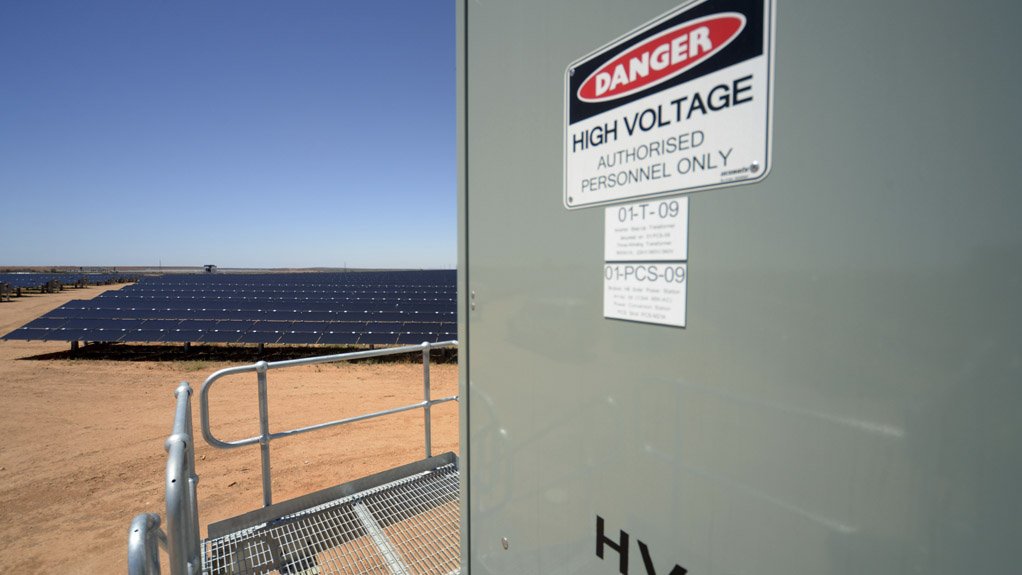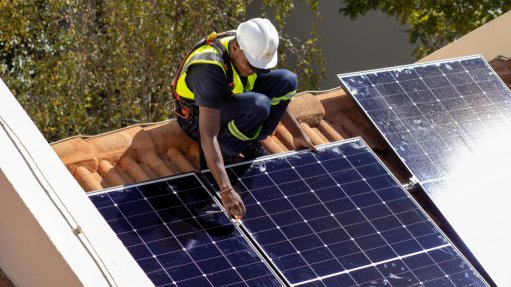Energy shortage presents mining industry with opportunities, pivotal choices
The energy challenges facing mining companies in South Africa have given rise to significant opportunities, strategic management consulting firm Boston Consulting Group partner Rudi van Blerk says.
Already, many of these companies have seized these opportunities, capitalising on the unique advantages offered by the country’s current unstable economic and political landscape, he adds.
“The primary advantage lies in the simultaneous opportunity for the enhancement of access to reliable electricity, decarbonisation and increased affordability of energy. This integrated approach allows mining companies in South Africa to address these three elements collectively, a prospect not always feasible in other global regions where these aspects often conflict, necessitating trade-offs,” he tells Mining Weekly.
Van Blerk says the distinctive nature of this opportunity in South Africa is marked by the ability to concurrently pursue multiple objectives.
Mining companies in South Africa are implementing diverse strategies to enhance their energy sustainability. Key considerations include the choice between procuring energy from entities other than State-owned utility Eskom or becoming independent generators of electricity.
Additionally, companies grapple with decisions regarding individual versus collaborative initiatives and the potential transformation of energy sourcing into a business venture. Various mining entities in South Africa have pursued different combinations of these options.
Van Blerk notes that, concerning energy procurement, robust commercial agreements have been established between commercial generators outside of Eskom and the private sector, particularly mining companies.
“These agreements, typically bilateral in nature, involve commercial and industrial customers partnering with external generators. Despite the advantages, this arrangement introduces challenges, notably the transmission grid emerging as a bottleneck in private sector generation,” he notes.
Recognising opportunities, Van Blerk says mining companies are leveraging agreements permitted by the government. Further, collaborations with other entities to build portfolios of electricity generation assets, either for self-consumption or as services, are gaining traction.
“The maturity of these concepts is evident, with a viable business case emerging where regulatory frameworks support, and electricity prices justify, such endeavours,” he says.
South Africa’s energy supply shortage, estimated at between 4 GW and 5 GW, is attributed to the protracted underinvestment by Eskom in new capacity, compounded by reliability issues within its existing generation fleet.
The ramifications of this energy deficit are particularly pronounced in the mining sector, a vital contributor to the nation's gross domestic product at about 8%, and a direct employer of about 500 000 people. The industry has faced multifaceted energy-related challenges in recent years, including unreliability, escalating costs and substantial emissions of greenhouse gases, all stemming from the constrained energy supply.
Van Blerk says the contemporary energy landscape in South Africa revolves around three pivotal elements: availability, affordability and sustainability.
“These facets collectively constitute the core components of the prevailing energy challenge for numerous companies. The salience of energy availability is underscored owing to its pivotal role in enabling the operational continuity of mining companies, hinging on access to electricity,” he says.
However, Van Blerk notes that this challenge is not singular. Concurrently, mining companies also have to grapple with the affordability of electricity.
“The cost of electricity in South Africa has undergone a significant surge, currently comprising about 12.5% of a mining company's overall cost base,” he says.
This escalating financial burden is exacerbated by mounting expectations for mining companies to adopt greener practices in metal and mineral production, driven by market demands and the imposition of carbon border taxes, such as the European Union's Carbon Border Adjustment Mechanism. These regulatory measures pose substantial barriers to exports, further complicating the landscape for South African mining enterprises.
Moreover, as the market dynamics evolve, customers are progressively asserting their preference for greener inputs in both commercial and industrial processes. The confluence of market pressures and environmental consciousness necessitates a strategic recalibration for mining companies to align with evolving expectations, Van Blerk notes.
He says the imposition of carbon border taxes introduces a complex dynamic, compelling mining companies to navigate a dual market setup.
“Companies must deliberate on whether to participate in regions with stringent carbon reduction expectations or in areas with fewer carbon reduction requirements. This decision-making process is increasingly integral to running a mining company, emphasising the strategic imperative in play,” he says.
A substantial portion of South African exports face risks owing to the imposition of carbon border taxes in certain global markets. This situation has highlighted the necessity for mining companies to align their strategies with prevailing carbon reduction expectations in key markets to better navigate the evolving landscape of international trade dynamics.
Van Blerk notes that, in facing the decision between two distinct strategic approaches, mining companies are under considerable pressure to align with a market that demands a lower carbon footprint.
He says the segment of the global market with fewer expectations for a reduced carbon footprint is diminishing as global trends increasingly emphasise stringent carbon expectations.
“Participating in a market with reduced carbon expectations offers advantages, as competing in a saturated high-carbon market may necessitate offering discounts on metals and minerals. Conversely, the lower-carbon market presents an opportunity to command a premium for products,” Van Blerk observes.
He says mining companies must deliberate on whether to engage in fierce competition for market share in a high-carbon market characterised by depressed prices and saturated supply.
Alternatively, they may opt to undergo a comprehensive company transformation, embracing substantial decarbonisation efforts to access markets subject to carbon border taxes and potentially secure premiums from discerning customers.
The judicious strategy, he argues, lies in prioritising decarbonisation and targeting markets where premium prices are attainable.
“This approach is particularly relevant for South Africa owing to its advantageous renewable energy potential. The country boasts access to some of the world's finest renewable resources, offering substantial untapped generation capacity. This potential stands as a competitive advantage on the global stage,” Van Blerk notes.
However, he says it is essential to acknowledge that South Africa faces challenges in other cost aspects, notably labour costs. While these costs may be advantageous compared with European standards, they present a disadvantage when compared with those in India and other developing countries.
Comments
Press Office
Announcements
What's On
Subscribe to improve your user experience...
Option 1 (equivalent of R125 a month):
Receive a weekly copy of Creamer Media's Engineering News & Mining Weekly magazine
(print copy for those in South Africa and e-magazine for those outside of South Africa)
Receive daily email newsletters
Access to full search results
Access archive of magazine back copies
Access to Projects in Progress
Access to ONE Research Report of your choice in PDF format
Option 2 (equivalent of R375 a month):
All benefits from Option 1
PLUS
Access to Creamer Media's Research Channel Africa for ALL Research Reports, in PDF format, on various industrial and mining sectors
including Electricity; Water; Energy Transition; Hydrogen; Roads, Rail and Ports; Coal; Gold; Platinum; Battery Metals; etc.
Already a subscriber?
Forgotten your password?
Receive weekly copy of Creamer Media's Engineering News & Mining Weekly magazine (print copy for those in South Africa and e-magazine for those outside of South Africa)
➕
Recieve daily email newsletters
➕
Access to full search results
➕
Access archive of magazine back copies
➕
Access to Projects in Progress
➕
Access to ONE Research Report of your choice in PDF format
RESEARCH CHANNEL AFRICA
R4500 (equivalent of R375 a month)
SUBSCRIBEAll benefits from Option 1
➕
Access to Creamer Media's Research Channel Africa for ALL Research Reports on various industrial and mining sectors, in PDF format, including on:
Electricity
➕
Water
➕
Energy Transition
➕
Hydrogen
➕
Roads, Rail and Ports
➕
Coal
➕
Gold
➕
Platinum
➕
Battery Metals
➕
etc.
Receive all benefits from Option 1 or Option 2 delivered to numerous people at your company
➕
Multiple User names and Passwords for simultaneous log-ins
➕
Intranet integration access to all in your organisation























